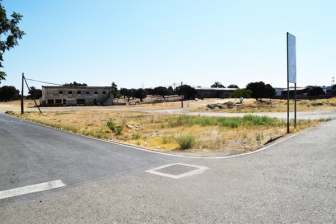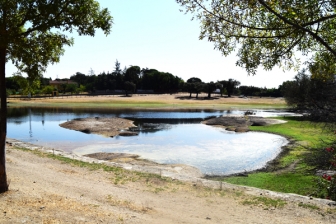Casar de Cáceres (ES)
The Synthetic Site Folder and Site Brief are available for free.
Please register and login to access the Complete Site Folder.
- Synthetic site folder EN | ES
- Site Brief EN | ES
- Site on Google Maps
- Back to map
Data
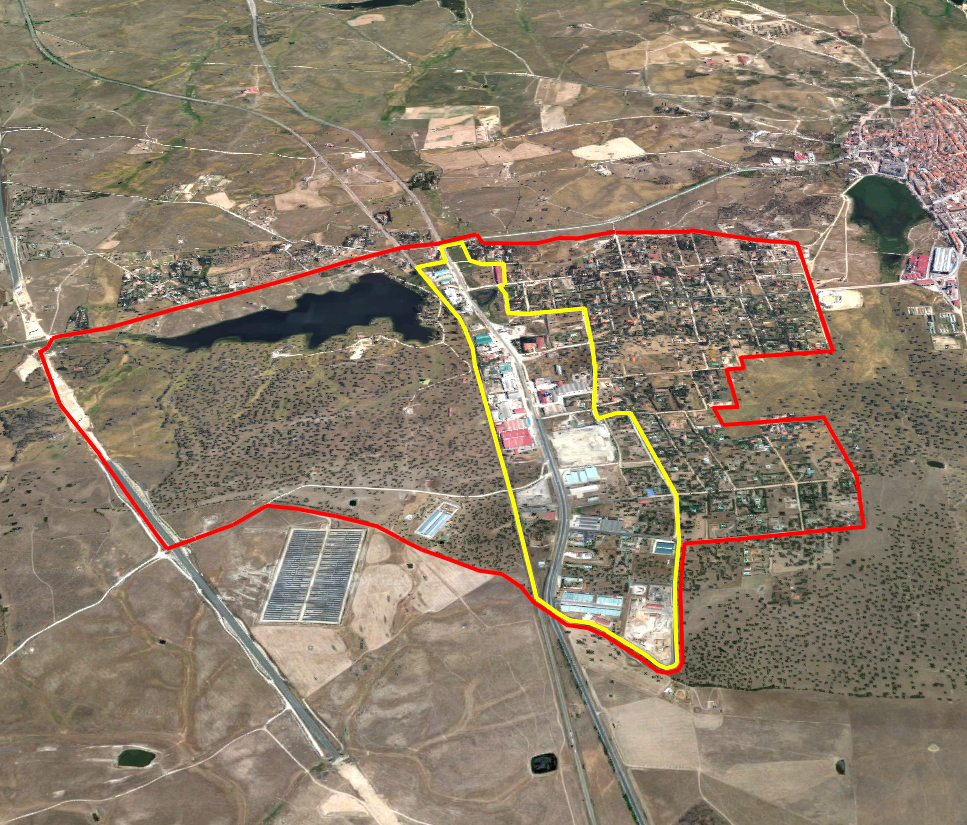
Project scale L - urban + architecture
Location La Charca del hambre industrial estate, Casar de Cáceres, Cáceres Province
Population 4,532 inhabitants
Strategic site 255 ha - Project site 8.8 ha
Site proposed by Directorate General of Architecture, Regional Government of Extremadura
Actors involved Regional Government of Extremadura, Casar City Council
Owner of the site Public and private ownership
Commission after competition Urban development project
Team representative Architect - urbanist - landscaper
More Information
How can the site contribute to a productive city?
The proposed site forms a backbone for the "Charca del Hambre" Industrial Estate in Casar de Cáceres, alongside the N-630 highway. This industrial zone contains a variety of small and medium businesses, of great value for the area’s competitive economy and a good opportunity for local development, taking advantage of its location between two natural areas. The work done by the enterprises based here will contribute to the technological, economic and social growth of the area. In this context, the potential of this industrial space is to be analysed with a view to drafting a sustainable urban development proposal. Proposals should improve the current conditions and attract new businesses to set up on the estate.
City strategy
The present and future of this industrial area is closely linked to its urban planning and its connection to the "Las Capellanías" Industrial Estate in Cáceres. These two estates, barely 10 km apart, are both located beside the N-630 highway. They constitute a potential growth and development axis. The value of this axis will soon be further incremented when a new eminently technological estate opens at the junction of the A66 and N630 highways.
On a more local scale, work has been done to improve the main road link, CC-100, between the town and its industrial area, including a new bicycle path. The authorities wish to continue improving the connections with the Southern part of the town along “Polígono Casar de Cáceres” Road. The disappearance of the current railway tracks will enable as well to improve connections between East and West, between Cojuge Pond, Charca del Hambre pond and El Casar Lagoon.
Site definition
The area proposed for the operation is on the "Charca del Hambre" Industrial Estate. It has a clearly linear structure, marked by the adjacent N-630 highway and the railway easement. There is a broad diversity of business activity on the estate, with predominantly small-scale production systems.
One of the features of this area is the relationship between the industries and the natural environment, represented by Charca del Hambre and Charca del Cojuge ponds. This relationship lends a distinctive character to the area and is also a good opportunity for the reappraisal of the spaces that define it.
How is production inserted in the urban diversity programme?
The major highways that form the backbone of Casar de Cáceres —mainly the A-66 motorway and the N-630 national highway— and the town’s proximity to the province capital, Cáceres, make the project area an interesting opportunity for local development and the promotion of industrial activity. The relation between the current industrial estate and the new one foreseen in the Southern part of the city, will help to the productive development of Casar.
The aim is to improve the value of the "Charca del Hambre" Industrial Estate and create a relationship between the traditions of Casar de Cáceres’ economic activities —the reception of raw materials— and their transformation in the industrial pavilions that are the focus of this proposal.
Any new activities must be established in an environmentally responsible and respectful way with the area that receives them and its ethnographic values. It is worthwhile reappraising the evolution of traditional production activities and the way they have transformed and adapted to technological progress.
The disappearance of the current railway tracks underlines the importance of the role of this area in the relationship between Dehesa Boyal neighbourhood and Charcha del Hambre pond, using the opportunities that the area’s natural resources provide.
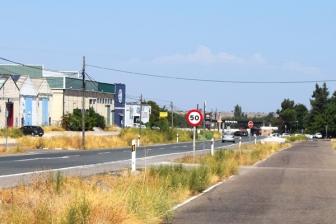 Industrial estate - Charca del Hambre
Industrial estate - Charca del Hambre
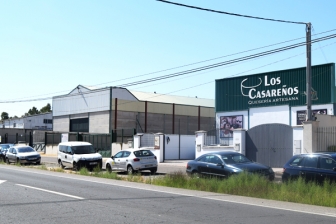 Production area - industrial estate Charca del Hambre
Production area - industrial estate Charca del Hambre
Questions on the site
Hi! I can't seem to unzip or open the jpg's you've uploaded, they're nither zip-files nor pure jpgs (can't open them in photoshop and the files don't have a jpg extention. Is there a chance you could see to that/ another way to access the files. Thank you!
Dear participant, I am very sorry to hear that. However, we have just checked the Casar files and we have had no problem to download them. No other team has reported any problems.Please, try again.
This site is connected to the following theme
CREATING PROXIMITIES CREATING PROXIMITIES Interfaces and short cycles
Interfaces and short cycles
In the physical space of the city, but also at temporal and actors' scales, it is about establishing proximities between living and working both within residential areas and between residential areas and monofunctional production zones. It is also about rethinking the transition between high-speed metropolitan mobility and the low speed of neighbourhoods.
The creation of interfaces contributes to the transformation of infrastructures of mobility, logistics, commerce or general services, by shortening production cycles, and generates new kinds of relations between residential and farming activities, between housing and services, between spaces and communities. Interface is a fluid space on incremental and adaptive processes, rejecting predefined master plans.
Specific documents
Questions on the site
You have to be connected –and therefore registered– to be able to ask a question.
Fr. 16 May 2025
Deadline for submitting questions
Fr. 30 May 2025
Deadline for answers
Before submitting a question, make sure it does not already appear in the FAQ.
Please ask questions on sites in the Sites section.
Please ask questions on rules in the Rules section.
If your question does not receive any answer in 10 days, check the FAQ to make sure the answer does not appear under another label or email the secretariat concerned by the question (national secretariat for the sites, European secretariat for the rules).
